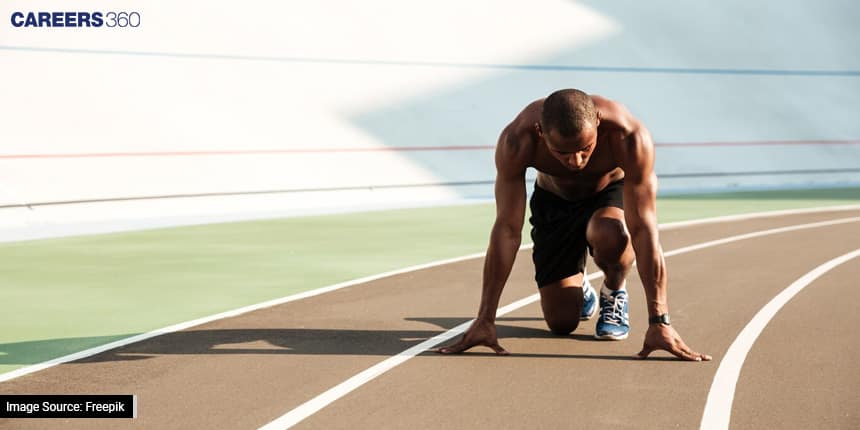How Much Does An Athlete’s Frame Of Mind Affect Their Performance?
Sports is not merely about physical prowess; it is equally about mental strength. Other than hard work and training, mental strength forms the third quotient that drives a sportsman's performance. Whether it's the exhilaration of victory, the agony of defeat, or the nervousness before a game, how an athlete manages their emotion plays a crucial role in their game.

Emotions play a vital role during a sports performance. They are intertwined in a complex dance, much like a well-rehearsed routine. Emotions have the power to influence an athlete's focus, decision-making, and physical abilities. The interplay of joy, anger, anxiety, and confidence can lead to either outstanding achievements or heart-wrenching disappointments on the field. Understanding how the ups and downs of one’s mental state can affect performance sports is the first step toward converting them into your strength. In this article, we will provide valuable insights on how to leverage your emotions to help you perform better during a game.
Also Check- How Does A Science Fairs Empower Young Minds?
The Power of Emotions in Sports
Emotions are not just abstract mental states; they have a physical counterpart. The release of hormones like adrenaline and cortisol during emotional responses can affect heart rate, muscle tension, and breathing patterns. These physiological changes directly impact an athlete's performance. Emotions are not just abstract feelings, they are powerful drivers that can significantly influence an athlete's performance. Understanding this impact is essential for anyone aiming to excel in sports.
Motivation and Drive
Positive emotions like enthusiasm and determination can act as motivators. They infuse athletes with the drive to overcome obstacles, push through pain, and attain their goals. Emotions fuel the internal fire that keeps sportspersons going when the going gets tough.
Confidence Boost
Emotions like self-assurance and self-belief are key ingredients for success. When athletes are emotionally in sync with their abilities, they are more likely to take risks and perform at their best. Confidence can make the difference between victory and defeat.
Performance Anxiety
On the flip side, extreme levels of negative emotions such as anxiety and fear can hinder performance. Overthinking, self-doubt, and pressure from expectations can lead to physical and mental fatigue, affecting an athlete's capacity to perform to their true potential.
The Science Behind Emotions and Performance
Understanding the physiological and psychological underpinnings of emotions in sports is critical to harness their power effectively.
Brain-Body Connection
Emotions originate in the brain, triggering a cascade of physical responses. When an athlete experiences joy or excitement, the brain releases endorphins, enhancing energy levels and reducing pain perception. Conversely, anxiety can result in increased stress hormones, affecting coordination and decision-making.
Focus and Concentration
Emotions can dictate where an athlete's focus lies. Positive emotions often lead to a state of "flow," where athletes are fully immersed in their performance. Negative emotions, on the other hand, can distract and disrupt an athlete's concentration.
The Role of Emotional Intelligence
Athletes with high emotional intelligence are better equipped to manage their emotions effectively. They can recognize and regulate their feelings, which is vital in high-pressure situations.
Also Read | 5 Board Games Other Than Chess That Will Sharpen Your Critical Thinking Ability
Strategies for Managing your Emotions
To optimise performance, athletes must learn to manage their emotions. Here are some strategies to achieve this.
Visualisation and Mental Rehearsal
Mentally rehearsing a successful performance can build confidence and reduce anxiety. Athletes can visualise themselves achieving their goals, which can have a profound impact on their actual performance.
Mindfulness and Breathing Techniques
Practising mindfulness and deep breathing can help athletes stay present in the moment, preventing their emotions from overwhelming them.
Emotional Coaching
Coaches and sports psychologists play a vital role in helping athletes understand and manage their emotions. Working with a professional can make a significant difference in an athlete's performance.
Harnessing Emotions for Success
Emotional Regulation
Training to control and manage emotions is vital for athletes. Techniques such as deep breathing, meditation, and mindfulness can help maintain emotional balance.
Visualisation
Athletes can harness the power of positive imagery to create a sense of success, reducing anxiety and enhancing self-confidence.
Self-Talk
Developing a positive internal dialogue can help athletes manage their emotions better and maintain focus on the task at hand.
Goal Setting
Establishing clear, attainable goals can motivate athletes and help them stay emotionally engaged with their performance.
Emotions are the invisible force that play a very important role in an athlete’s achievement potential. By harnessing the power of emotions, athletes can unlock their true potential and reach the pinnacle of sporting excellence. So, embrace your emotions, maintain a balanced mind, and let them propel you to your sporting dreams.
Also Read | Ancient Indian Sporting Heritage: 6 Games That Found Their Way Into Our Modern Lives
